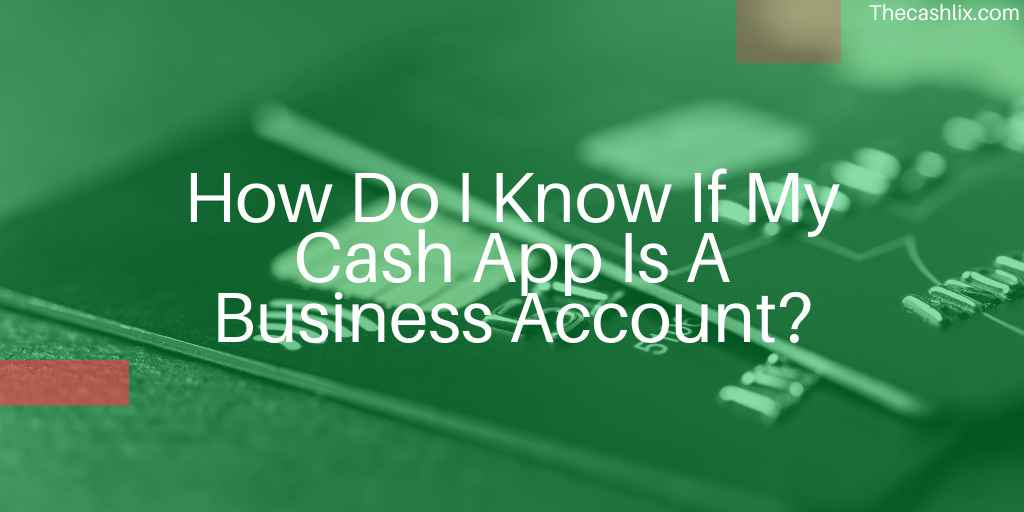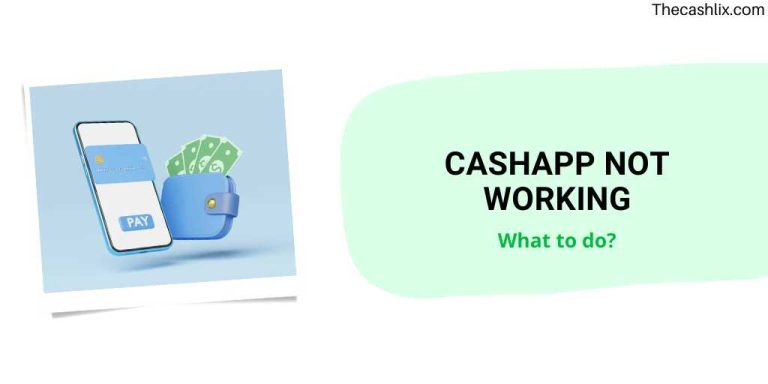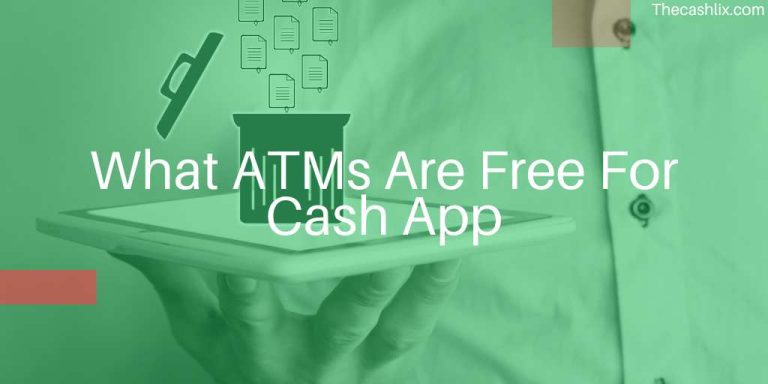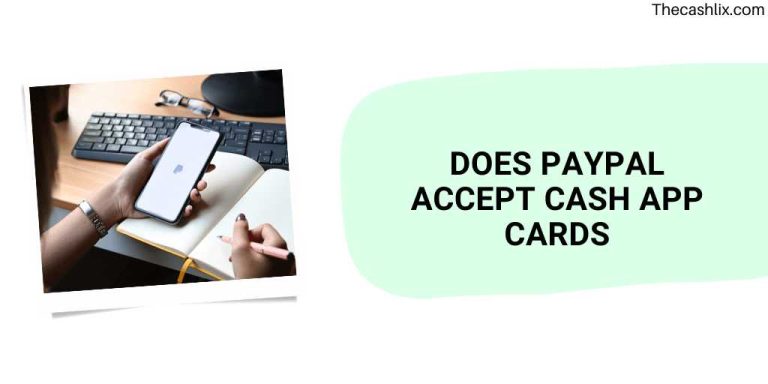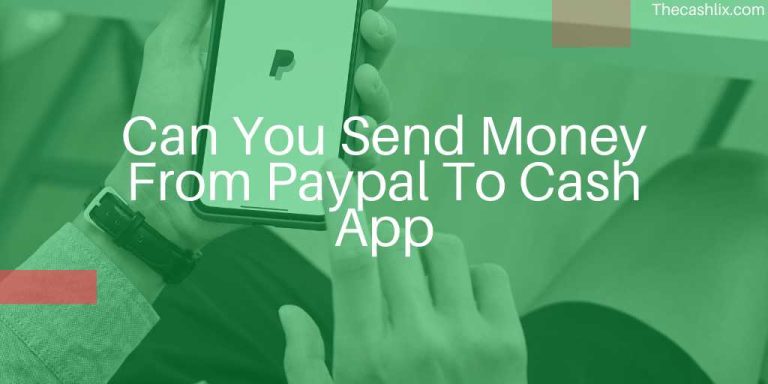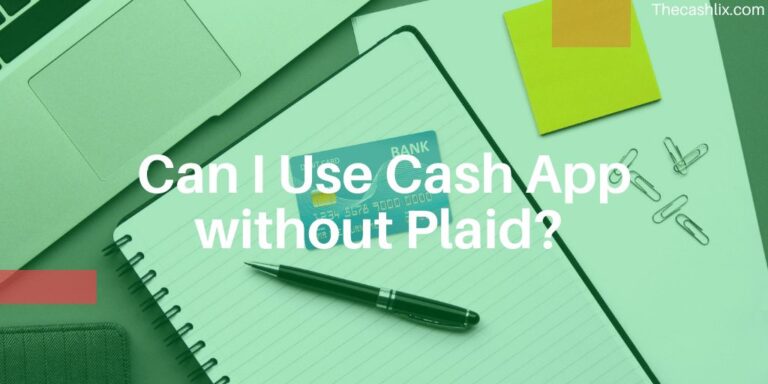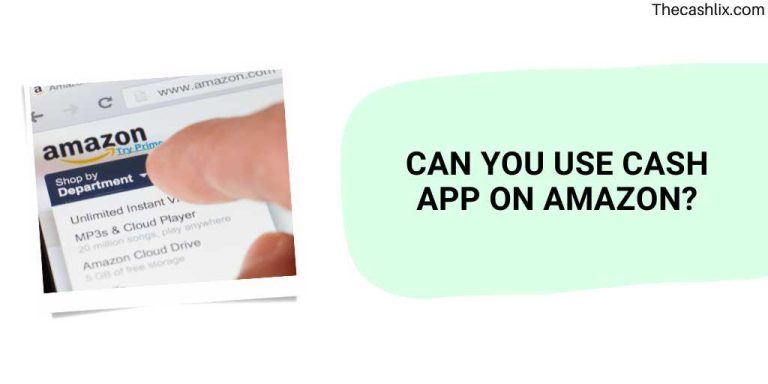How Do I Know If My Cash App Is A Business Account?
Want to know whether your account is business or personal and wondering How Do I Know If My Cash App Is A Business Account? Don’t worry; you’ll get to know everything about it here.
A straightforward app for P2P payments called Cash App, commonly known as Square Cash, debuted in 2013 and was later expanded for commercial use in 2015.
Small companies looking for a quick and straightforward way to receive payments or provide clients with another payment choice may find the solution in this new cash app.
Customers can pay companies on the P2P payment network via a Cash App business account, also known as Cash for Business, which allows them to accept credit cards, debit cards, and money transfers.
It provides transparent transaction costs and fast deposits for small companies. However, it restricts how firms deliver receipts to customers and the ability to charge extra fees for speedier processing.
Read the complete article to learn more about Cash App business accounts.
How can I identify whether my Cash App account is a business account?
Only corporate accounts may receive a blue badge from the Cash app. The blue badge is a business account with the same advantages as a cash app guaranteed account. CashApp is a private profile by configuration.
However, there will be a 2.75 percent fee to collect payments for any services if the account is a business account. The account will show an extra icon next to your cash app name. It stands apart from other accounts because its symbol resembles a little building.
What is the business account in the Cash App?
Business owners may get unlimited money from customers using the Cash App for business accounts. Cash App only charges 2.75 percent for each transaction for accepting money through a business account to benefit small company owners.
The merchants can build their payment link in a CashApp business account and share it with their clients. The good news is that this payment method may also be used by people who do not use CashApp without downloading the Square payment app or opening a new account.
Cash App personal account holders automatically receive a cash app card; cash App corporate account holders do not. Users of the Cash app business account must deposit funds into the associated bank account or pay a 3 percent charge to transfer funds from their wallet to a credit card.
Any individual who owns a small business, such as a store or similar enterprise, can utilize a business account. Nowadays, almost everyone wants to make payments through electronic methods.
CashApp makes the transaction straightforward, hassle-free, and without activation fees. Simply download the app onto your iOS or Android device to get started.
Related: Cash App Multiple Bank Accounts – Myth or Reality?
Business Vs. Personal Accounts Cash App
Cash App personal accounts and Cash App for Business function mainly in a similar way. There are a few significant variations:
- A transaction charge applies when receiving money using a Cash App business account. An individual account doesn’t.
- With a recognized business account, there are no restrictions on the amount of money you may receive.
- Credit card payments are accepted but not from another Cash App account.
- Cash App allows you to have a personal and a business account simultaneously, but each account needs a specific phone number.
How do business accounts on Cash App operate?
You may use the P2P payment platform to accept payments using the Cash App business account. Through the Cash App, customers may pay you with debit and credit cards and prepaid cards.
A speedier deposit option is available for a charge. However, standard deposits typically take one to three days to reach bank accounts.
Customers can utilize a $Cashtag, a shared URL created by businesses, to pay fast. Customers can always be sure they are paying the appropriate company since each $Cashtag is distinct. But they may also use your phone number or email to find you.
To make it simpler to understand how much to submit annually, Cash App now offers business accounts the appropriate tax paperwork.
What Does the Green Thing on the Cash App Mean Next to the Name Mean?
You’ll see a plain green screen as soon as you open the Cash App. Requesting and paying are both simple to obtain. Two buttons, one shaped like a clock and the other like a person in a bubble, are in the screen’s upper right corner.
You may access your profile page by clicking the first button. You’ll see a cashtag, denoted by a dollar symbol ($), beneath the name. This is the exclusive alphanumeric code for you.
The “deal” icon, shown as a flash of light, may be seen next to a user’s name. Crossed lines represent the “close” symbol, indicating that the user has ended the conversation or ignored the notifications.
The Cash App’s Dollar Symbol: What Does It Mean?
The Cash App’s primary UI is colored green. The payment service is represented by the dollar sign ($). This symbol serves as both a button and an emblem for handling money. It features two stripes, a right slant, and is drawn in a stylized manner.
It expresses the three fundamental components of a software identity—strength, expertise, and forward progress. The dollar sign can be identified, and its meaning is understood in several ways.
The Articles that are also Useful:
- How to Fix Cash App Unable to Sign in On This Device
- Does CVS Load Cash App Cards – Yes, But…
- Cash App Instant Deposit Fee Calculator
- Cash App Not Working – What to Do?
Faqs
What does the little structure on Cash App signify next to the name?
The appearance of a blue verification label next to a $Cashtag indicates that Cash App has verified that the account is the real deal for the prominent figure, celebrity, or significant brand it represents.
How do you receive money from Green Dot?
Only the recipient’s Green Dot Bank account or debit card may be used to deposit funds. Before they may get the money you sent, they must have a customized chip-enabled card.
What distinguishes the Cash Apps for personal and corporate use?
Only money may be sent and received using the app. Owners of business accounts may make payment connections right in the app. You must link your Cash App account to your bank to withdraw money from your business account. Cash App charges rates that are competitive with those of other payment service providers.
Conclusion
Essential software for peer-to-peer payments called Cash App, commonly known as Square Cash, debuted in 2013 and was later expanded for commercial usage in 2015. CashApp is a personal account by default.
To receive payments for any services, however, there will be a 2.75 percent fee if it is a business account. Your cash app name will have an extra icon on the account.
It stands apart from other accounts because its symbol resembles a little building. I do hope you find this post helpful.
So this was all about How Do I Know If My Cash App Is A Business Account; please feel free to comment down below if you have any questions related to it, and don’t forget to share it with your friends if you like it and find it useful.

